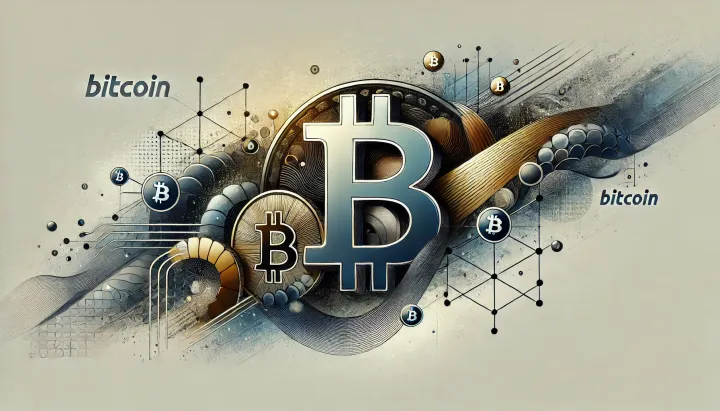Bitcoin Revolution: Transforming Money & Governance
On April 07, 2025, the Robin Seyr Podcast featured Tomer Strolight discussing Bitcoin as both a spiritual revolution and a disruptive economic force. The episode critiques traditional fiat systems while highlighting Bitcoin’s promise of individual sovereignty and technical innovation.

- My 'briefing notes' summarize the content of podcast episodes; they do not reflect my own views.
- They contain (1) a summary of podcast content, (2) potential information gaps, and (3) some speculative views on wider Bitcoin implications.
- Pay attention to broadcast dates (I often summarize older episodes)
- Some episodes I summarize may be sponsored: don't trust, verify, if the information you are looking for is to be used for decision-making.
Summary
On April 07, 2025, the Robin Seyr Podcast featured Tomer Strolight discussing Bitcoin as both a spiritual revolution and a disruptive economic force. The episode critiques traditional fiat systems while highlighting Bitcoin’s promise of individual sovereignty and technical innovation. It calls attention to the need for adaptive policy and robust technical solutions in a rapidly evolving financial landscape.
Take-Home Messages
- Spiritual Monetary Innovation: Bitcoin redefines money as an intangible, trust-based system.
- Decentralized Justice: Its inherent self-custody and transparent ledger offer a built-in system of financial accountability.
- Disruption of Fiat Norms: Bitcoin challenges the inflationary and politically influenced practices of traditional money.
- Technical and Consensus Challenges: Addressing scalability and protocol upgrades remains crucial for sustained growth.
- Policy and Governance Adaptation: Governments must evolve to integrate Bitcoin’s transformative potential without stifling innovation.
Overview
Tomer Strolight introduces Bitcoin as a revolutionary idea that transcends physical money, emphasizing its spiritual essence and decentralized nature. He outlines how Bitcoin’s design offers a trustless system that ensures individual financial sovereignty and transparent adjudication of transactions.
The discussion critiques the inherent flaws of fiat money, noting its susceptibility to inflation, manipulation, and political interference. Strolight argues that Bitcoin’s fixed monetary policy presents a stable and equitable alternative to traditional financial systems.
Technical challenges, such as achieving decentralized consensus for protocol upgrades, are acknowledged as necessary hurdles. These issues are presented as vital for maintaining Bitcoin’s integrity while adapting to a rapidly changing technological environment.
The conversation also explores the broader political and societal implications of Bitcoin adoption, from reducing government intervention in monetary affairs to empowering individuals. Strolight stresses the importance of continuous education and research to navigate these transformative changes.
Stakeholder Perspectives
- Bitcoin users: Emphasize self-custody and the empowerment that comes from decentralized financial control.
- Financial institutions: Face disruptive pressure to innovate as Bitcoin challenges traditional banking and monetary practices.
- Government regulators: Express concerns over diminished control and the need to adapt regulatory frameworks.
- Technologists and developers: Focus on overcoming technical hurdles such as scalability and consensus mechanisms.
- Academics and policymakers: Seek to understand Bitcoin’s broader socio-economic impact and devise effective policy responses.
Implications and Future Outlook
The episode underscores that Bitcoin’s dual identity, as both a spiritual and technological revolution, has far-reaching implications for monetary reform. Its fixed supply and decentralized design challenge the status quo of fiat money, suggesting a paradigm shift in financial governance. This transformation will require coordinated technical innovation and proactive policy measures.
Bitcoin’s impact on government functions and financial institutions hints at a gradual reduction in centralized control. As more stakeholders adopt Bitcoin, traditional systems may be forced to evolve or risk obsolescence. The long-term outlook points toward a more competitive, decentralized economic landscape where individual sovereignty is prioritized.
The discussion emphasizes the importance of addressing technical challenges such as decentralized consensus and protocol upgrades. Overcoming these hurdles is critical to ensuring Bitcoin’s resilience and scalability.
Some Key Information Gaps
- How can governments employ effective strategies to adapt to Bitcoin’s disruptive presence? This question is critical for developing policy frameworks that balance innovation with regulatory oversight. It addresses the challenge of integrating decentralized systems into existing governmental structures.
- How can Bitcoin’s decentralized justice mechanisms be effectively communicated to non-technical audiences? This inquiry aims to bridge the gap between complex technical concepts and public understanding. Enhancing communication will build trust and broader acceptance of Bitcoin’s security features.
- What technical solutions can overcome challenges in achieving decentralized consensus for protocol upgrades? Resolving consensus issues is central to maintaining Bitcoin’s scalability and security. A solution in this area would enable seamless evolution of the network without compromising its core principles.
- How will Bitcoin’s fixed monetary policy impact traditional banking structures? This question examines the economic ramifications of Bitcoin’s immutable supply and transparent rules. Its answer could provide insights into restructuring financial systems to favor stability and fairness.
- What are the potential political consequences of a global shift towards a Bitcoin standard? This inquiry explores the geopolitical implications of decentralized money on state power and governance. It is essential for anticipating how shifts in monetary control may reshape national and international policies.
Broader Implications for Bitcoin
Decentralized Monetary Reform
Bitcoin’s disruption of fiat systems may catalyze a global rethinking of monetary policies. Its fixed supply and transparent mechanisms offer a counterpoint to inflationary practices. This shift could lead to more stable and equitable financial systems worldwide, and a reduction in the transaction costs of governance.
Government Adaptation and Reduced Influence
As Bitcoin gains traction, traditional governments may see their monetary control diminish. The resulting reduction in centralized power could prompt reforms in public finance and regulatory policies. This evolution would necessitate a balance between state oversight and decentralized innovation.
Enhanced Individual Sovereignty and Market Dynamics
Bitcoin’s emphasis on self-custody empowers individuals to reclaim financial autonomy. This decentralization challenges conventional market structures and promotes greater personal responsibility. In turn, a more competitive landscape may emerge, driving innovation and diversity in financial services.



Comments ()